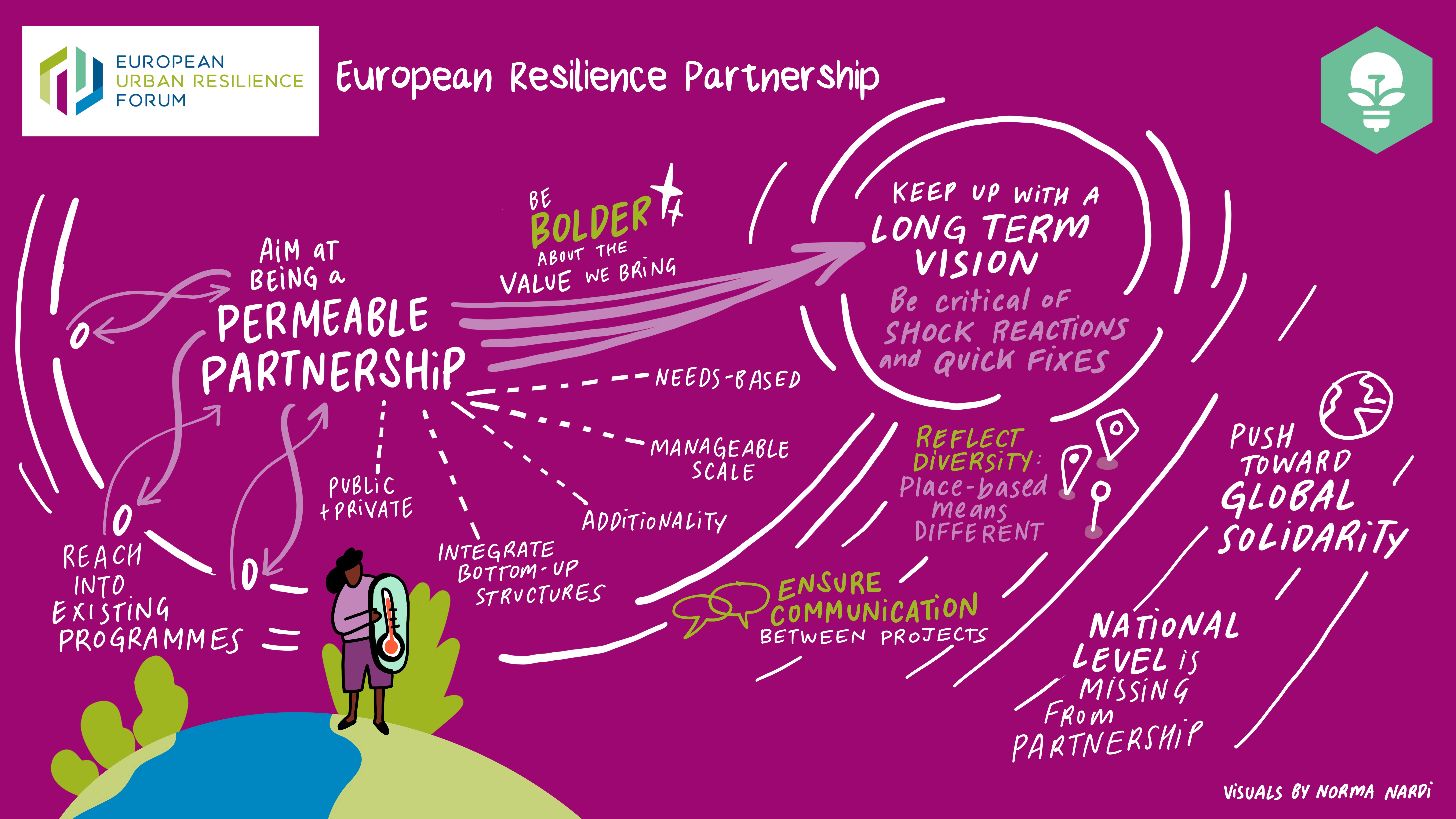We are in a unique moment in time – the transition to climate neutrality is accelerating, all while various overlapping crises continue to destabilise society. These include, of course, biodiversity, growing urban inequality and climate crises. But we are furthermore still working to recover in light of the COVID-19 pandemic, all while war rages within and beyond Europe’s border. How can we build resilience in the face of these changes and destabilising events?
The world is reaching a crossroads where there is a need for decisive collective action. Over 350 participants from cities and regions, research, community organisations, the European Commission and United Nations came together last week at the 10th edition of the European Urban Resilience Forum (EURESFO) in ICLEI member Cascais, Portugal to define pathways for cities, resulting in a number of clear calls to action.
Breaking silos in cities
Reflecting on progress made in the field of urban resilience over the past decade brought to light that we cannot sufficiently respond to the scale and complexity of upcoming risks while working in silos. As Virginijus Sinkevičius, European Commissioner for the Environment, Oceans and Fisheries explained in EURESFO’s opening plenary session; “We never know what’s around the corner. But, with an integrated approach, we are better prepared.”
Taking an integrated approach to resilience goes beyond working across silos: it also demands multi-level governance. Cities, regions, nations, and supranational bodies like the European Commission must come together, with local leaders getting the space required to shape effective policies. This year made clear that cities and regional authorities are engaged and ready to take action, while raising ambitions for national-level presence as part of next year’s event. Commissioner Sinkevičius said explicitly that next year, when the Commission plans to focus on water resilience, “cities will have a major role to play! And, in that work, we will be reaching out to ICLEI to draw on your knowledge and experience on the integrated approach.”
For their part, local leaders expressed again and again their willingness, unique expertise, and ability to contribute to these processes. Joanna Balsemao, City Councilor in host city Cascais, noted the eagerness of residents to take part in resilience-building at the local scale, explaining, “It’s good to hear what will happen in Europe and in Portugal, but people want to know what will happen in their city.”
Balsemao’s words echoed throughout a closed-door session for Mayors. This event, which convened a high-level political session with 17 mayors and city officials representing ICLEI Members from diverse European geographies, made it absolutely clear that local leaders are on the frontline of the climate crisis, and are committed to ensuring that their communities are resilient in the face of an uncertain future.
A European Resilience Partnership
The event, which brought together participants from over 44 countries, laid out a collective roadmap for an European Resilience Partnership, which will be further elaborated upon for its anticipated launch at EURESFO 2024 in ICLEI Member Valencia (Spain). The Partnership is intended to boost the impact of their initiatives, programmes and offerings through collaboration. Partnering institutions and organisations representing different sectors and governance scales aim to close gaps between their resilience approaches, facilities and tools towards seamless functioning of their technical and financial support to focus on ensuring resilience of cities and regions today, and to prepare for future stressors.

Harriët Tiemens, Director of the Green Metropolitan Region of Arnhem-Nijmegen (the Netherlands), and member of the ICLEI Europe Regional Executive Committee, supported this process, saying: “It's important to work with several stakeholders to make Europe more resilient and come into action. Setting targets together, developing a shared programme and finding the budget to execute it. There is no formal construct but collaboration on the content in a structured way with a coalition of the willing.”
Present proofing for a resilient future.
Wolfgang Teubner, ICLEI Europe Managing Director, has been clear in stating the importance of this opportunity at EURESFO for cities to convene and define a shared vision of a resilient transformation across Europe, “In the past 10 years, we have built a community and increased awareness for the broader concept of resilience: from focusing on adaptation, to broadening scope to cover a wider range of hazards and issues that cities are currently facing. Europe is on a good path; there is a stronger sense that cities are starting to address resilience issues and planning with a more systematic approach, while collaborating and supporting each other with the common goal of a resilient and climate neutral EU by 2030.”
In these turbulent times, amidst the extreme climate events happening today, equipping European cities with tools and ways of working that allow for decisive, collective climate action is essential to not only ‘future-proof’ our cities, but to ‘present-proof’ them too.
Learn more about ICLEI Europe’s activities on resilience and climate adaptation, initiatives, and project involvement here.
